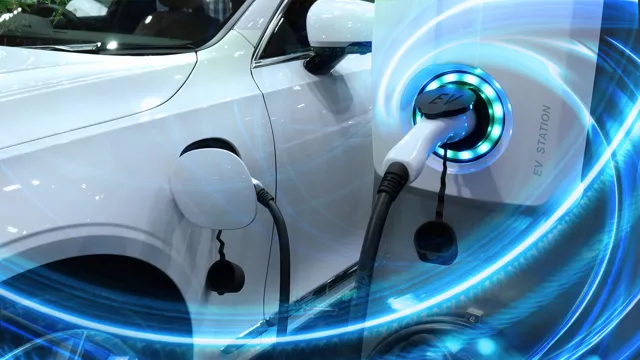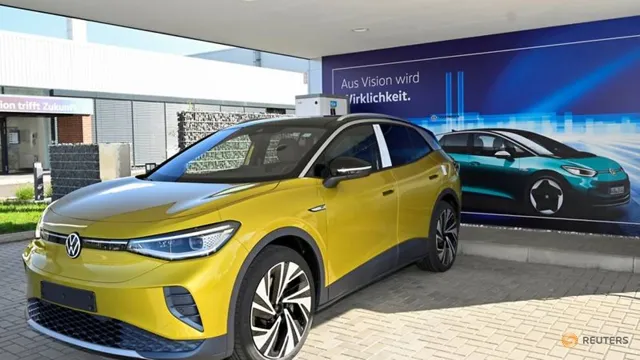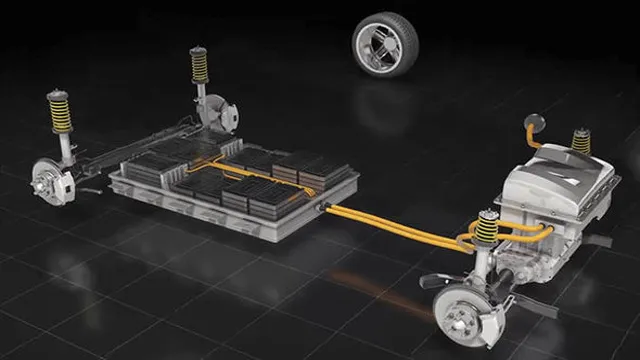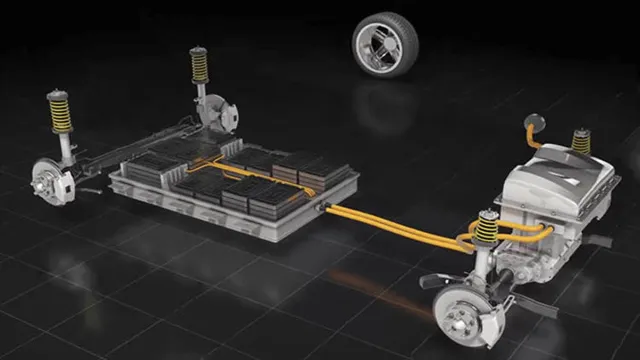Driving Toward a Greener Future: Exploring the Benefits of Electric Cars as Sustainable Technology
Electric cars have become increasingly popular in recent years, touted as a game-changing eco-friendly alternative to traditional gas-guzzling vehicles. But with the growing demand for electric cars and the increasing competitiveness among carmakers, there’s a lot of confusion around what qualifies as a “green” car. Do electric cars truly reflect green technology? Are they really better for the environment than their gas-powered counterparts? Let’s take a closer look at how electric cars work, the environmental benefits they offer, and whether they really are the future of green transportation.
What is Green Technology?
Electric cars are a part of green technology, which includes technologies that reduce or eliminate negative environmental impacts. Green technology aims to promote sustainable development and reduce greenhouse gas emissions, pollution, and resource depletion. Electric cars have no tailpipe emissions, which means less air pollution.
Moreover, they require less maintenance, and the energy that powers electric cars can come from renewable sources. As compared to traditional gasoline cars, electric cars produce fewer emissions, resulting in reduced greenhouse gas emissions and air pollution, which makes them a great solution for a cleaner environment. Therefore, electric cars can be an excellent option for people who care about the environment and want to reduce their carbon footprint.
Defining the Concept of Sustainability
Green technology is a concept that is well-aligned with the principles of sustainability. It refers to any technology that makes use of renewable and sustainable resources, as well as its ability to make a minimum impact on the environment. Green technology comprises a wide range of sectors including clean energy sources, green buildings, recycling, and sustainable transportation, among others.
Green technologies are designed to harness and utilize the power of nature in a controlled and precise manner, allowing us to create solutions that are both highly efficient and environmentally friendly. By developing and implementing green technology across industries, we can achieve a more sustainable future, reduce our carbon footprint, and create a cleaner, healthier planet for ourselves and future generations. Whether it is producing energy from wind turbines, harnessing the sun’s power through solar panels, or creating advanced materials for green buildings, green technology has a crucial role to play in the transition towards a more sustainable and environmentally conscious society.
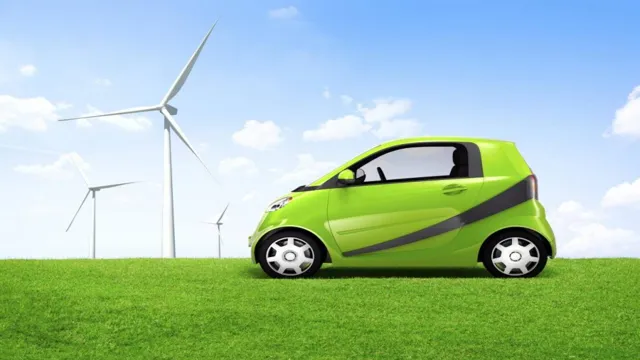
The Importance of Reducing Carbon Footprints
Green technology is a term that has gained attention and importance in recent years, as we come to terms with the effects of climate change. It refers to technology that has been designed with the environment in mind, with a focus on reducing or eliminating negative impacts on it. This could include the development of renewable energy sources, such as solar or wind power, which offer sustainable alternatives to fossil fuels.
Other examples of green technology include energy-efficient appliances, green buildings, and electric cars. By adopting green technology, individuals and businesses alike can reduce their carbon footprint, which is the amount of greenhouse gases produced through their actions. This is important because carbon emissions are one of the main contributors to climate change.
By reducing our carbon footprint, we can slow the pace of climate change and help preserve our planet for future generations.
Electric Cars: A Sustainable Solution
Electric cars are a sustainable solution for our transportation needs, and they are undoubtedly green technology. They produce zero emissions while driving, as they run on electricity, making them an essential part of the fight against climate change. The concept of electric vehicles may seem relatively new, but they have been around for decades.
The environmental impact of traditional gasoline-powered vehicles has become increasingly apparent over the years. The production and burning of fossil fuels lead to pollution, which contributes to global warming, and the depletion of natural resources. Electric cars have the power to revolutionize the way we travel while positively impacting the environment.
They are an eco-friendly option that can help preserve the earth’s resources, reduce harmful emissions, and create a better future for generations to come. With advancements in battery technology and charging infrastructure, electric vehicles are now more accessible than ever, and their widespread adoption is essential to ensure a sustainable future.
Reducing Carbon Emissions and Air Pollution
As the world moves towards a more sustainable future, electric cars have become a popular option for reducing carbon emissions and air pollution. With electric vehicles, the energy stored in their batteries powers the motor, eliminating the need for gas-powered engines. This means that electric cars don’t emit harmful gases like carbon monoxide and nitrogen oxide, which contribute to air pollution.
Moreover, electric cars also have a lower carbon footprint than their gas-powered counterparts since the electricity needed to charge their batteries can come from renewable sources. Electric cars are like mobile batteries on wheels—always ready to be charged and drive for miles without harming the environment. They are truly the sustainable solution that we need to reduce the carbon footprint and protect the environment.
So why not give it a try and embrace the electric car revolution?
The Energy Efficiency of Electric Cars
Electric Cars Electric cars have become increasingly popular as people seek more sustainable transportation options. One of the main advantages of electric cars is their high energy efficiency compared to traditional gasoline-powered vehicles. Electric cars are powered by batteries that store electricity from charging stations or other sources, and can convert up to 60% of the stored energy into motion.
In contrast, gasoline cars typically convert only 20% of the energy stored in fuel into motion, with the rest being lost as waste heat. This means that electric cars not only produce fewer greenhouse gas emissions, but also use less energy overall to travel the same distance as a gasoline car. While electric cars still require energy to charge their batteries, advancements in renewable energy sources mean that future electric cars may be able to run on 100% clean energy.
Overall, electric cars are a sustainable solution to transportation that have a significant impact on energy efficiency and reducing carbon emissions.
The Impact of Electric Cars on the Environment
As the world becomes more conscious about the impact of fossil fuels on the environment, electric cars have emerged as a sustainable solution. Compared to traditional vehicles, electric cars produce significantly less greenhouse gas emissions, making them a cleaner and more eco-friendly alternative. Additionally, electric cars can be powered using renewable energy sources, such as solar or wind power, which further reduces their carbon footprint.
By choosing an electric car, you’re not only being kind to the environment, but you’re also saving on fuel costs in the long run. While electric cars still have their limitations, such as the higher initial cost and limited charging infrastructure, they offer a promising future for sustainable transportation. So why not contribute to the fight against climate change by making the switch to an electric car?
The Advantages of Electric Cars
Yes, electric cars are a form of green technology. They have several advantages over traditional gas-powered vehicles. First and foremost, electric cars are much more efficient in converting energy into motion.
This means they require less energy to travel the same distance as gas-powered cars, which translates to lower greenhouse gas emissions. Additionally, electric cars generate zero emissions, which is a significant benefit to the environment and public health. In contrast, gas-powered cars emit harmful pollutants that contribute to smog and air pollution, which can cause respiratory problems and other health issues.
Furthermore, the cost of electricity used to power electric cars is relatively affordable, especially compared to gasoline prices, which can fluctuate greatly depending on geopolitical events. All of these advantages combine to make electric cars a compelling alternative to traditional gas-powered vehicles.
Reducing Dependency on Fossil Fuels
Electric cars have become increasingly popular due to their numerous benefits for the environment and society. One of the biggest advantages of electric cars is that they reduce our dependency on fossil fuels, which are finite resources. By using electricity as their primary source of energy, these vehicles emit zero emissions, which greatly contributes to cleaner air and less greenhouse gas emissions.
Additionally, electric cars are significantly quieter than traditional gasoline vehicles, which can help reduce noise pollution in urban areas. They also require less maintenance than their combustion engine counterparts and have lower fuel costs. While the initial cost of an electric car may be higher, the long-term savings on fuel and maintenance costs often outweigh the higher sticker price.
Overall, electric cars have proven to be a viable and sustainable alternative to traditional gasoline vehicles, helping us move towards a greener and cleaner future.
Lowering Environmental Impact
Electric Cars Electric cars have a lot of advantages when it comes to lowering our environmental impact. Firstly, they produce zero emissions, unlike traditional gasoline-powered cars. This factor alone makes them a much more sustainable and environmentally friendly alternative.
Additionally, electric cars require less maintenance than traditional vehicles, as they don’t need oil changes or tune-ups. This not only makes them more convenient but also reduces the amount of waste produced. Finally, electric cars can be charged using renewable energy sources like solar or wind power, further reducing their impact on the environment.
Overall, electric cars have the potential to make a significant difference in lowering our carbon footprint and helping to create a more sustainable future for generations to come.
Wrapping Up
In conclusion, electric cars can be considered as a green technology due to their low emission of harmful pollutants and reduced reliance on non-renewable energy sources. Although the production of the batteries used in electric vehicles can have negative environmental impacts, their contribution to reducing greenhouse gas emissions outweighs such concerns. Additionally, as technology continues to advance, it is likely that electric cars will become even more sustainable and efficient.
Therefore, investing in electric cars is a step towards reducing our carbon footprint and achieving a cleaner and more sustainable future. Overall, it’s safe to say that electric cars are definitely a greener alternative to traditional gas-powered cars.
Conclusion
After diving deep into the world of electric cars and sustainable technology, it’s safe to say that the answer to whether or not electric cars are green technology is a resounding YES! By relying on renewable energy sources and producing much lower emissions than traditional gas-powered cars, electric cars are helping to pave the way towards a greener future. So the next time you’re cruising down the highway in your eco-friendly ride, you can feel good about the fact that you’re doing your part to save the planet, one mile at a time.”
FAQs
What is green technology in relation to electric cars?
Green technology refers to the environmental benefits of using electric cars, which emit no harmful pollutants and have a much lower carbon footprint compared to traditional gasoline-powered cars.
Are electric cars truly eco-friendly?
Yes, electric cars are considered eco-friendly because they emit no tailpipe emissions and use electricity from renewable sources, which significantly reduces overall carbon emissions.
How do electric cars save energy?
Electric cars save energy by regenerating power while braking, using lightweight materials to conserve energy, and using more efficient transmission systems, which altogether makes them much more efficient than traditional cars.
What is the range of an electric car?
The range of an electric car depends on the specific model, but most can travel between 100-300 miles on a fully charged battery. Some luxury models can even exceed 400 miles per charge.


